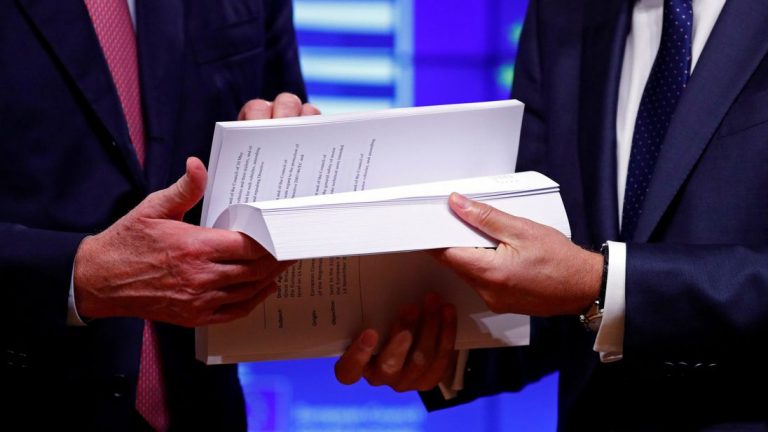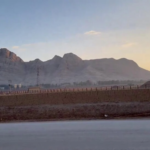There is one positive in the draft withdrawal agreement between the EU and Britain: It rules out a hard border on the island of Ireland.
It means that people can move back and forth freely and nationalists will not feel locked into a Northern state.
This provision represents a major defeat for the DUP. They aligned themselves with the hard right of the Tory party who want to re-configure Britain as a bargain basement economy in a new alliance with Trump’s America. Such a strategy is directly opposed to the interests of the Protestant workers the DUP claim to represent. But the DUP’s only aim was to strengthen the border.
In the small print of the deal, there are other aspects which are unpalatable. There are the restrictions on state aid and there is even a commitment to support the EU-Turkey deal designed to stop the movement of refugees. But that was only to be expected from any deal reached between Tories and neoliberals.
The more immediate issue, however, is that the chances of the deal being passed are slim. The Tories are in crisis and Theresa May does not have the support in the of Commons. Her friends in big business will probably try to create a crisis in the money markets to scare reluctant MPs to vote for it – but even that is by no means certain. The representatives of British capitalism are floundering around and do not know where to go.
All of this means that the withdrawal deal can unravel and the Brexit crisis will continue.
In preparation for this, Leo Varadkar made an important announcement on Saturday which represented a major change in stage of stance. Up to now, he had claimed that the Irish government would not impose a hard border. But under cover of a glare of positive publicity for the deal, he said,
‘I think in a no-deal scenario it would be very difficult to avoid a hard border. As Ireland [is] remaining part of the European Union, we would no doubt be required to implement European law’.
In blunt terms, he was stating that if there is a no deal, the Irish government would help to create a hard border- with all this implies.
The reality, however, is that Brexit is demonstrating in the most direct fashion why the partition of Ireland makes no sense. Instead of talking about having to ‘implement EU law’ Varadkar’s government should be telling Britain that it wants an immediate referendum on whether or not the majority in the North want to end partition. Such a border poll should also be held on the same day in the South as a signal that what is on offer is a democratic solution where a new Ireland will be created by a constituent assembly drawn from representatives across the island.
The Brexit crisis is already being used to give further subsidies to business and to increase talk of workers accepting more wage restraint.
There should be an immediate end to such talk because workers have had enough of austerity. In any new crisis, it is time that the wealthy made some sacrifices.












